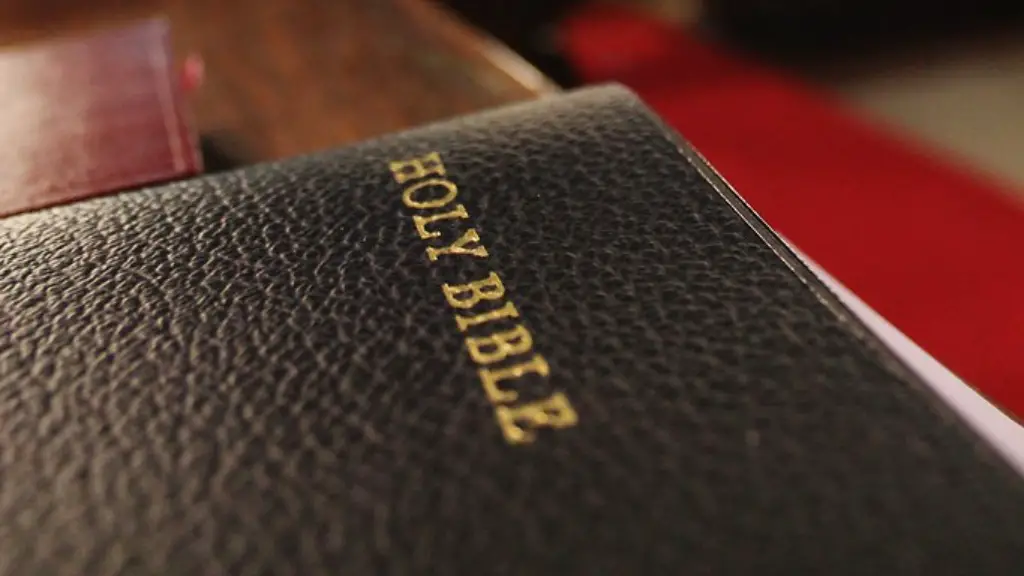Keturah In the Bible
Keturah is a woman who is mentioned in the Old Testament of the Bible in the book of Genesis. According to the biblical narrative, she was the wife of Abraham, who was the founder of the people of Israel. The name of Keturah comes from a root word meaning “perfumed” or “incense.”
In the book of Genesis, Keturah is described as the concubine of Abraham, who took her to be his wife after the death of Sarah, whom Abraham had married first. Keturah bore Abraham six sons, whom he sent away to the East, with gifts of gold, silver and precious stones. The sons of Keturah are identified in the Old Testament narrative as Zimran, Jokshan, Medan, Midian, Ishbak and Shuah.
Keturah’s role in the book of Genesis has been the subject of some debate among Biblical scholars, who have interpreted her story in different ways. Some view her as a concubine of Abraham, whereas others view her as an equal wife. The fact that Abraham sent her sons away with gifts of gold and silver can be seen as an indication of his admiration for her.
Keturah is also mentioned in Jewish and Islamic traditions, which refer to her as one of the mothers of the Ishmaelites. According to Islamic tradition, Keturah was a proud woman who had traveled widely in her life and was proud of her progeny. The Ishmaelites were a nation of people who lived in the Middle East during the time of Abraham, and are seen as forerunners of the Arab people.
In addition to the biblical and religious interpretations of Keturah’s role in the narrative, some historians have theorized that her story may have its roots in a folktale. It is possible that the story of Abraham and Keturah is a retelling of an ancient tale about a marriage between two deities or a powerful man and an independent woman.
The story of Keturah has been the source of much speculation for centuries. While her exact role in the narrative remains somewhat enigmatic, she is an important part of the history of the Ishmaelites and of early Biblical traditions. In any case, she is an important figure in the Old Testament and a testament to the power of love and devotion.
Keturah’s Religion
There are conflicting opinions about the religious background of Keturah. Some scholars believe that she may have been a worshipper of the Canaanite gods, while others believe that she was a follower of the monotheistic religion of Abraham. The Talmud, a collection of Jewish rabbinical interpretations from the Mishnah, states that Keturah was Abraham’s concubine, suggesting that she was not of the same faith as her husband.
The Islamic traditions about Keturah are even more varied. Some scholars state that she was a believing monotheist like Abraham, while others suggest she was a polytheist, like the many pagan religions of her time. Many Islamic traditions state that Keturah made converts to Islam among her children, though the degree of her religious influence is unclear.
What is certain is that Keturah was an influential figure in early monotheistic faiths. Her story is often used to illustrate the consequences of following polytheism instead of monotheism. It is likely that, whatever her exact religious background, Keturah’s story was used to show the importance of devotion to God and the consequences of being unfaithful.
Regardless of her religious background, the beliefs expressed within the text of Keturah’s story show the importance of faith, perseverance, and obedience to God above all else. By placing these values at the forefront of her story, the Old Testament clearly emphasizes the power of faith and faithfulness.
Keturah’s Legacy
Keturah has been an influential figure throughout much of Jewish and Islamic history. The presence of her character in both Biblical and Islamic traditions has served to remind believers of both faiths of the importance of devotion to God. Her story is often cited as an example of what can happen when one strays from God.
Today, Keturah’s legacy has found a new home in the form of popular culture. She is often featured in books, television shows, and films, often as a strong, determined woman who follows her own set of values despite the obstacles she faces. By exploring the legacy of Keturah and the story of Abraham and their sons, viewers can gain insight into how faith, loyalty, and loyalty to God are crucial to a successful life.
Keturah and her story are also a reminder of the power of hope and belief. Despite the adversities and tragedy of her life, she persevered and ultimately found unity and peace. Her story is a powerful testament to the potential strength of faith, and a reminder to us all to never give up hope.
Keturah’s Impact on Women
Keturah is an inspiration to all women, and her story has been cited many times as an example of a strong, indomitable female character. By demonstrating the power of faith and courage, Keturah can be seen as an example of a woman who is capable of rising above her own struggles to create a better life for herself. This is an inspiring message for all women, and for many, Keturah is remembered as a symbol of hope and courage.
In addition to being a source of inspiration, Keturah’s story also serves to remind viewers of the complex role of religion in women’s lives. It is clear that Keturah’s experience was one of struggle and suffering, yet due to her faith, she was ultimately able to triumph. This is an important reminder to all women of the power of faith and belief.
Keturah’s story is an inspiring and influential one, and it is one which continues to have a lasting impact. Her story of struggle, faith, and hope serves as a powerful reminder to all women of the importance of perseverance, courage, and an unwavering commitment to one’s beliefs.
Keturah’s Identity
The identity of Keturah is an enigma. It is not known exactly who she was or where she came from. Her status as a concubine of Abraham may indicate that she was not a Hebrew, or may suggest that she was of a different ethnic group. Likewise, her status as a concubine may mean that she was of a low social class.
Keturah’s identity has been further muddy by religious and historical texts. For example, Jewish rabbinical interpretations from the Talmud state that she was Abraham’s concubine, but there are other interpretations which suggest that she was either a god or a powerful woman. Likewise, in Islamic tradition, she is called Ketura, signifying that she was a proud woman who was proud of her progeny.
Given the conflicting interpretations of her identity, it is likely that her exact background remains unknown. All that can be said is that she was an important figure in the story of Abraham, and that her story inspired many things, from literature to popular culture.
Conclusion
Keturah is an important figure in the Old Testament, and in both Jewish and Islamic traditions. Despite the mystery surrounding her identity and her exact role in the narrative, her story continues to be an influential source of inspiration for people of both faiths. Her story illustrates the power of faith and perseverance, and serves as an example of how women can overcome any challenge if they put their trust in God.





